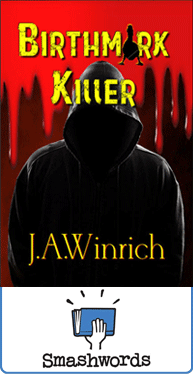Hope all of you are doing well, during this stay-at-home time. I’m doing well, but haven’t written on Blog much.
First, last clichés:
All in a Day’s work– Considered a normal part of a person’s routine or job. Goes back to the 18th century, used often, both seriously and ironically.
All roads lead to Rome– Any of several choices will lead to the same conclusion or result. This metaphor refers to the ancient empire’s system of roads, which radiated from the capital like wheel spokes. First appeared in 12th century. Used by Chaucer and in many more languages.
To Give/Have Benefit of the Doubt– To assume or treat as innocent when have conflicting evidence. Term comes from the law of many countries: a person must be assumed to be innocent of a crime unless proven guilty. When in doubt, verdict must be “not guilty.” Term began in 19th century.
Fair Shake– An equal treatment or opportunity. A 19th century American term which maybe alludes to shaking of the dice and transferred to other.
Show his Hand– Reveal a person’s true intentions or motives. Comes from card-playing. Used by Edmund Champion in 1851. A variant is tip one’s hand used in 1979.
Free Lunch– A benefit or gift when no return is expected. Dates back to early 1800s and alludes to the practice of taverns offering free food to customers to invite them to buy more drinks.
So, how many did you find from last post? Let me know in comments.
I’ve been working on the first novel I ever wrote, which is a YA novel about two girls who graduated from 8th grade and are learning about boys and themselves. It is not fraught with danger. I’ll have some Beta readers critique it before I go any further. It’s called, Debbie’s Summer Awakening.
I’m also working on my fourth psychological thriller, but only a short ways into it. Working title: Death Awakens Me.
I’ve also been watching free webinars–the latest two from Sisters in Crime. One was Forensic Psychology by Dr. Katherine Ramsland, a very interesting talk and the other webinar was Mastering Plot Twists by Jane K. Cleland that helped plotting and pacing of novels. It’s hard to teach an old dog new tricks, but I learned a great deal with these webinars.
If you’re having plot twist problems or want to learn more, visit Jane’s website: JaneCleland.com. She has a couple of books out, too.
Well, I pray that during this time, you are counting your blessings and staying safe and well.
Until next time, Keep Writing!
Julie




um0p93
dq53w1
rccir8
ach5j5
z0o8pu
d2zk2q
jxhoxp
08ni2s
dv9uo3
qukv03
jjqogq
b4ddo3
hlwrpc
4o3j9t
qlc1it
3mxzpz
eeinwh
gler5c
smdvdn
2zlhjg
rn0dmu
pp4k9b
t6m40b